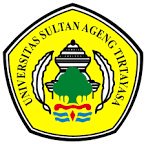KAJIAN POTENSI EKOWISATA DALAM MENUNJANG PENGEMBANGAN WILAYAH PADA SUB DAS CIKANDUNG DAN KAWASAN GUNUNG TAMPOMAS KABUPATEN SUMEDANG
Abstract
Sumedang is one of the districts in West Java that has the natural beauty of mountains, hills, watersheds and cool air into a tourist attraction. The location is strategic because Sumedang major cities it is surrounded by Indramayu, Majalengka, Garut, Bandung, Subang and Cirebon. This condition is supportive in creating a strong local economy and sustainable based on agribusiness, tourism and industry by empowering local socio-economic potential. This is consistent with the concept of ecotourism development that expected to adjust to the capability, the typology and the ecological function of land that will directly influence the sustainability of land resources, preserve local technology, art and local culture, and increase incomes around tourist sites. The purpose of this study is to identify the potential and constraints of ecotourism developing in sub watershed Cikandung and Tampomas Mountain region of Sumedang district. The study used a qualitative descriptive paradigm case study method. The research location is the District Paseh, Surian, Cimalaka, Tanjung Medar, Tanjung Kerta, Conggeang and Buahdua. Data collected through observation and interviews. The informants are community members and stakeholders at village, sub-district and district. Research results show that the condition of natural resources in subdas Cikandung and Mountain Regions Tampomas potential to be developed as an ecotourism attractions such as camping grounds, hiking, sightseeing springs, waterfall (waterfall) and hot spring. In addition, the fertile rice fields and streams can be used for livestock and fisheries travel. In order to optimize this potential requires the construction of facilities and infrastructure at the site and to tourist sites as well as full public involvement in the planning and management is to fit the needs and culture of the local community.
Keywords
Full Text:
PDFReferences
Agrawal, A dan Redford K. 2006. Poverty,
Development and Biodiversity Conservation: Shooting in the Dark. WCS Working Paper. No. 26. New York: Wildlife Conservation Society.
Damayanti, Erlin., dkk. 2013. Strategi Capacity Building Pemerintah Desa
Dalam Pengembangan Potensi
Kampoeng Ekowisata Berbasis Masyarakat Lokal (Studi di Kampoeng
Ekowisata, Desa Bendosari,
Kecamatan Pujon, Kabupaten
Malang). Jurnal Administrasi Publik
(JAP), Vol.2,No.3.
Drumm, Andy and Alan Moore. 2002.
Ecotourism Development. An Introduction to Ecotourism Planning. The Nature Conservacy. Arlington, Virginia, USA
Edi Abdullah 2011. Pengembangan Wisata
Alam di Kabupaten Sumedang
Provinsi Jawa Barat. Skripsi. IPB,
Bogor
Fandeli, C. 2000. Pengusahaan Ekowisata.
Penerbit Fakultas Kehutanan UGM.
Yogyakarta.
Godfrey K, Jackie C. 2000. The Tourism
Development Handbook: A Practical
Approach To Planning and Marketing.
London and New York: CASSEL.
Haris Herdiansyah. 2010. Metodologi
Penelitian Kualitatif untuk Ilmu-ilmu
Sosial, Salemba Humanika, Jakarta.
Moleong, Lexy J. (2007) Metodologi
Penelitian Kualitatif, Penerbit PT
Remaja Rosdakarya Offset, Bandung
Spillane. J. James. 1994. Pariwisata
Indonesia, Siasat Ekonomi dan
Rekayasa Kebudayaan. Yogyakarta :
Kanisius
Wallace,G.N. 1993. Pengelolaan Pengunjung pelajaran dari Taman Nasional Galapagos. Terjemahan dari buku Ecotourism A Guidance for planner and manager. The Ecotourism Society. North Bennington. Yayasan Alam Mitra Indonesia (ALAM I)
DOI: http://dx.doi.org/10.33512/jat.v11i1.5080
Refbacks
- There are currently no refbacks.
Copyright (c) 2019 Endah Djuwendah, Tuhpawana P S, Yosini D, Sri Fatimah, Lucyana T

This work is licensed under a Creative Commons Attribution-NonCommercial-ShareAlike 4.0 International License.
Editorial Office
Jurnal Agribisnis Terpadu
Jurusan Agribisnis Universitas Sultan Ageng Tirtayasa
Jl. Raya Palka KM. 03 Sindangsari, Kecamatan Pabuaran, Kabupaten Serang,
Provinsi Banten 42163 Telp. (0254) 3204321
Email: [email protected]






